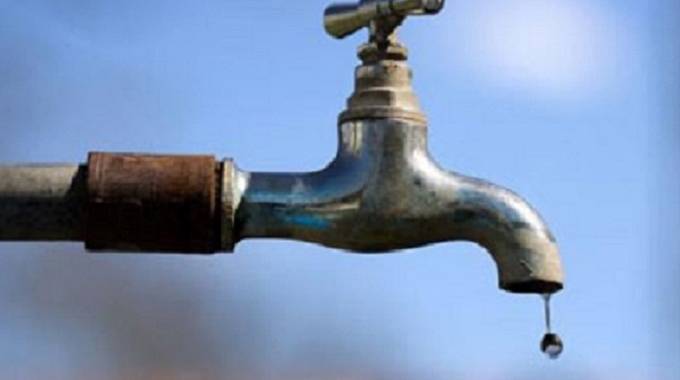
The Sunday News

Dr Eugine Makaya, Correspondent
I WAS born in the year 1973, a period that coincided with the 1972/3 drought which is one of the three declared continental centenary droughts of this time. You will not believe it that I did not know how important water could be until I conversed with my mother whose narration of my birth in a drought year was so touching.
I think soldiers who have been out fighting in the Kalahari Desert can testify to the value of water more than I did. Having graduated with a doctoral degree in water engineering and taught water engineering for more than 10 years, I still didn’t have a clear picture of how important water was.
Of course I know water sustains life and I need to take a sufficient amount each day. I have fallen thirsty before, I have seen someone thirst before but still the importance of water has been an idea — not real.
It wasn’t until January this year that my mother asked me about water. Initially I thought she wanted to know more about my qualifications in water. I narrated course by course learnt and finally concluded by expounding on the courses that I teach. The moment I talked about water losses, and drought, I didn’t know that I had pressed the wrong button.
She looked into my face, and asked, “do you know the importance of water?” The exclamation in the gesture scared me and I neither could mumble nor fumble. I had known this exclamation since childhood and I prepared my adrenaline for the worst that could happen. To my dismay, she softly said, “my son, you have learnt, but you don’t know.” Before I said any word, she continued to narrate her ordeal. “When I delivered you, it was just before midnight, on a drought year, in a rural set-up, with water in the home enough for only one person to drink . . .” The story is heart rending and I am not comfortable going on with it.
Now I know how important water is. Indeed I know its importance from the perspective of a utility, household and from the scientific perspective. I understand water as a finite resource, finite spatially and temporally. Water is so critical but as long as seasons come and go, we think water will always be available. Save water, Save Life — All drops count!
Water wars and conflicts are looming if the state of diminishing of water resources continues at the current rate. Consider the current rate of water rationing. It has not been like that.
Yes, the population is growing, and water demand is increasing exacerbated by improved standards of living world over. However, the scramble for water is yet to be realised. I don’t want to be a prophet of doom, but indeed doom is foreseeable if the status quo continues. Expect ethnic, tribal and racial antagonism over water, both surface and ground.
First things first, you and me, lets save water. Let’s unite for this purpose. Don’t ignore it now, because what goes around comes around. Abundance today doesn’t mean abundance tomorrow. Where did those springs go? The hot springs, and those from which we used to fetch water from in the early 1980s. Water scarcity is real.
Let’s start now. Let’s start simple. Let’s start together. If water utilities can’t reduce their water losses, let’s not wait for them to. Let’s start in our households. Fix dripping taps in your home.
An average household can lose up to 20 000 litres per year to dripping taps. This is a huge amount that can be recycled and sustain generations. Go around the household, from staff quarters, the gardens, the kitchen and the toilets and make sure no tap is left dripping. Endeavour to fix all faulty taps, install faucets on taps or replace old taps without faucets. For one day in a month, use the shower instead of the bath tub which waste lots of water. Reusing water can help save the much needed water. It may be wastewater today, but tomorrow it can save the situation. Also take a step to pay your water bills and enjoy enough clean water. Water saving measures are inexhaustible and in my next writing, I will be explaining other ways.
To the City of Bulawayo I wish to compliment you for a good job you are doing in saving water. However, there is still more room to improve. Huge water infrastructure projects can be rolled out in the long term, but it will not save the situation if water losses are still in excess of 50 percent of the production.
Water losses are number one challenge of water utilities. In the short to medium term, the City can monitor water losses from the end-users point. It’s sad that world over, utilities monitor only up to the consumer water meter, at the expense of what goes beyond the consumer water meter. The water utility can advocate for smart water systems in households and promote a water saving culture among the consumers.
Together we can Save Water — Save Life, Conserve Water, Talk Water Saving.
– Dr Eugine Makaya is a lecturer at Nust’s Department of Civil and Water Engineering. He can be contacted on [email protected] : Twitter — @EugineMakaya



